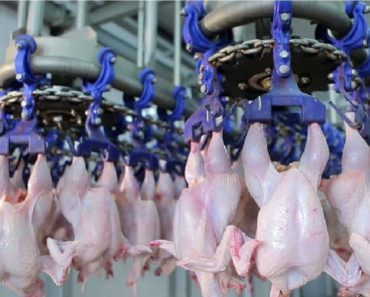Contents

Discover the secrets to successful chicken egg hatching with our guide on the best temperature and humidity levels. Whether you’re a seasoned chicken farmer or a beginner, this article will provide you with essential insights and tips for creating the ideal environment to maximize your hatch rates. Don’t miss out on this essential knowledge for a thriving chicken coop!
Ideal Temperature and Humidity for Hatching Chicken Eggs: The Key Factors for Successful Incubation
The ideal temperature and humidity are key factors for successful incubation when hatching chicken eggs. It is crucial to maintain a consistent temperature between 99.5°F (37.5°C) and 100°F (37.8°C) throughout the incubation period. Fluctuations in temperature can result in poor hatching rates or even embryo mortality. A reliable incubator with a digital thermostat is recommended to ensure precise control of temperature.
In terms of humidity, it is important to maintain a relative humidity (RH) of around 50-55% during the first 18 days of incubation. This helps facilitate proper embryo development. However, during the final three days before hatching, humidity should be increased to around 65-75% to aid the chicks in breaking through the shell.
Proper ventilation is also essential to prevent excessive moisture buildup inside the incubator. This can be achieved by having small vents in the incubator or using an automatic ventilation system.
Remember that regular monitoring and adjustment of temperature and humidity levels are necessary during the entire incubation process to ensure optimal conditions for chick development. By maintaining the ideal temperature and humidity, you significantly increase the chances of a successful hatch.
Optimal Temperature for Hatching Chicken Eggs

The temperature at which chicken eggs are incubated plays a crucial role in their successful hatching. It’s essential to ensure that the eggs are exposed to the correct temperature throughout the incubation period. In general, the optimal temperature range for hatching chicken eggs is between 99 and 101 degrees Fahrenheit (37.2 to 38.3 degrees Celsius). Maintaining this temperature range consistently is vital to maximize hatch rates and prevent any negative effects on chick development.
Ideal Humidity Levels for Successful Egg Incubation
Humidity is another key factor when it comes to hatching chicken eggs. Proper humidity levels help maintain the moisture required for the growing embryo inside the egg. During egg incubation, the relative humidity should be around 50 to 55% during the initial 18 days, and then increased to 65 to 70% during the final 3 days. This increase in humidity helps create a suitable environment for the chick to break through the shell during the hatching process.
Monitoring and Adjusting Temperature and Humidity
Steps to Ensure Optimal Hatching Conditions
To achieve the best results when incubating chicken eggs, it’s crucial to continually monitor and adjust the temperature and humidity levels. Use a reliable thermometer and hygrometer to measure these parameters accurately. Regularly check and make necessary adjustments to maintain the optimal temperature range and humidity levels within the incubator. Be mindful that external factors such as room temperature fluctuations or seasonal changes may affect the incubator environment, so it’s important to stay vigilant and make any necessary changes promptly.
FAQ
What is the ideal temperature and humidity for hatching chicken eggs?
The ideal temperature and humidity for hatching chicken eggs are crucial factors for successful incubation. The recommended temperature for most chicken breeds is around 99.5°F (37.5°C). It is important to maintain this temperature consistently throughout the incubation period.
In terms of humidity, during the first 18 days of incubation, the humidity level should be maintained around 45-50%. However, during the last three days (days 19-21), when the embryos are preparing to hatch, the humidity should be increased to 65%. This increased humidity helps soften the eggshell for easier hatching and prevents the chick from getting stuck inside the shell.
To achieve the desired temperature and humidity levels, it is recommended to use a reliable incubator that allows for precise control of these parameters. Regular monitoring and adjustment may be necessary to ensure optimal conditions for successful hatching.
How does temperature and humidity affect the success of chicken egg hatching?
Temperature and humidity are crucial factors that affect the success of chicken egg hatching. Maintaining the correct temperature and humidity levels throughout the incubation period is essential for the healthy development of embryos inside the eggs.
Temperature: The ideal temperature for chicken egg incubation is around 99.5°F (37.5°C). Deviating from this temperature range can have significant impacts on hatch rates. If the temperature is too high, it can lead to early hatching or cause deformities in the chicks. On the other hand, if the temperature is too low, it can delay hatching or result in failed embryos.
Humidity: Humidity levels during incubation are crucial for proper embryo development. Initially, during the first 18 days of incubation, the humidity should be maintained at around 50-55%. This allows the eggs to lose a small amount of moisture, which is necessary for the air cell formation. During the final days of incubation (days 19-21), humidity should be increased to around 65-75% to facilitate eggshell softening and hatching. Inadequate humidity levels can lead to weak chicks, decreased hatchability, and difficulties in hatching.
Both temperature and humidity should be carefully monitored and controlled using an incubator to ensure optimal conditions for successful hatching of chicken eggs.
Are there any specific recommendations for temperature and humidity control during the incubation period of chicken eggs?
During the incubation period of chicken eggs, maintaining proper temperature and humidity levels is crucial for successful hatching. The recommended temperature for chicken egg incubation is around 99.5°F (37.5°C). However, it is important to note that slight variations within a degree or two can be tolerated.
Humidity levels are also essential for egg development. Ideally, the humidity in the incubator should be maintained at around 50-55% relative humidity (RH) for the first 18 days of incubation. This helps ensure proper moisture loss from the egg and promotes healthy growth. During the last few days of incubation, typically known as the lockdown period, the humidity should be increased to around 65-75% RH. This higher humidity level helps soften the eggshell for the chicks to more easily peck through during hatch.
To monitor and control temperature and humidity, it is recommended to use a reliable incubator with built-in sensors. Regularly check the temperature and humidity readings using a separate thermometer and hygrometer to ensure accuracy. Make necessary adjustments to the incubator settings, such as increasing or decreasing airflow, adding water to increase humidity, or adjusting thermostat settings, if needed.
It is important to note that different chicken breeds may have slightly different requirements. Therefore, it is always a good idea to consult breed-specific guidelines or reach out to experienced chicken breeders for advice on optimal temperature and humidity conditions for a particular breed.
Remember, maintaining consistent temperature and humidity throughout the incubation period will greatly increase the chances of successful hatching and healthy chick development.
Maintaining the optimal temperature and humidity levels is crucial for successful chicken egg hatching. By providing a consistent temperature range of 99.5 to 100 degrees Fahrenheit (37.5 to 37.8 degrees Celsius) and a relative humidity of 40-50% during incubation, we can maximize our chances of a high hatch rate. Remember, variations outside these ranges can lead to poor hatchability, developmental issues, or even embryo mortality. It is essential to monitor and adjust these factors regularly to ensure the best possible conditions for our precious chicken eggs. By prioritizing temperature control and humidity maintenance, we can increase the likelihood of healthy chicks emerging from their shells. So, whether you’re a backyard hobbyist or a professional poultry farmer, don’t underestimate the impact of these environmental parameters on successful chicken egg hatching.






